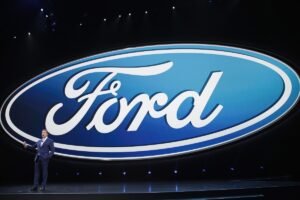Lucid Motors is currently embroiled in a legal battle over the name of its newly developed Gravity SUV, set to enter production in the near future. But the company may be at risk of losing the trademark for its chosen name, as EV charging company Gravity Inc. has filed a petition with the U.S. Patent and Trademark Office’s Trademark Trial and Appeal Board (TTAB). The petition, filed in December of last year, calls for the revocation of Lucid’s trademark, citing potential consumer confusion and previous use of the name by Gravity Inc. in the electric vehicle industry.
“Such oppositions and challenges can be expensive and may adversely affect our ability to maintain the goodwill gained in connection with a particular trademark.”
This challenge comes at a pivotal time for Lucid, as they are struggling to attract customers and turn a profit. The company reported a loss of $2.8 billion in 2023 and is now projecting to produce only 9,000 vehicles in 2024, far less than their initial goal of 100,000 cars.
Despite the petition against them, Lucid has remained optimistic and disputed the claims made by Gravity Inc. However, in their annual filing with the Securities and Exchange Commission, the company did acknowledge the potential impact of such challenges on their business.
“We feel very, very confident about it,” Moshe Cohen, CEO of Gravity Inc., said of the petition in an interview with TechCrunch.
Gravity Inc. has focused on developing advanced fast-charging stations for electric vehicles and recently launched its first flagship location in New York City. The startup also previously operated a fleet of electric taxis through a pilot program with the Taxi and Limousine Commission (TLC) in 2021, using vehicles such as the Mustang Mach-E and Tesla Model Y SUV.
In 2017, Gravity Inc. was granted a trademark for the word “Gravity” in relation to transportation services and software. However, the TLC pilot program ended in 2023 and a spokesperson confirmed that only one of Gravity’s taxis is still active in their system.
In response to the petition filed by Gravity Inc., Lucid argues that their use of the Gravity name for a different purpose would not confuse consumers.
“[T]he offering for sale of electrically powered automobiles is totally distinct from [Gravity Inc.’s] alleged provision of hired-car transport, passenger transport, and taxi and limousine transport services… consumers are not likely to believe that [Gravity Inc.’s] and [Lucid’s] goods and/or services are connected,” Lucid states in their response.
Lucid even filed a counterclaim to potentially force Gravity Inc. to relinquish their trademark due to their previous abandonment of the fleet business.
“[Lucid] believes that it is being and will continue to be damaged by [Gravity Inc.’s] registration,” the company writes.








